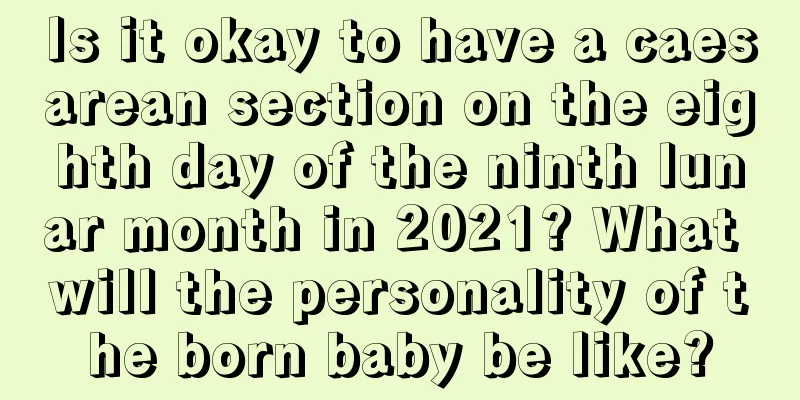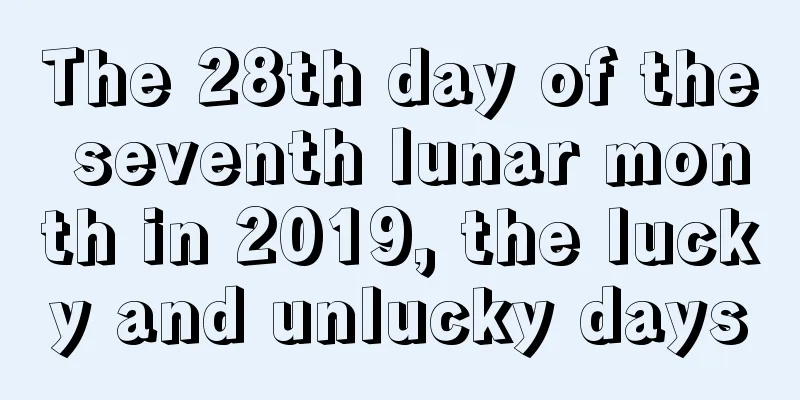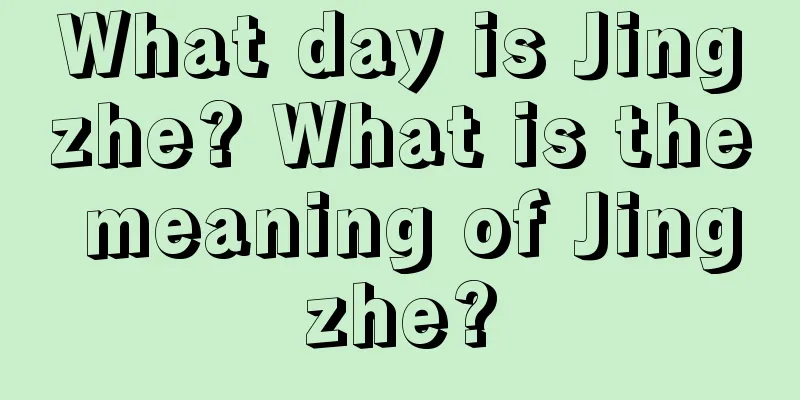Why is it said that the New Year begins after Laba Festival? Is there any explanation for this?

Introduction: Laba Festival is an important traditional cultural festival in our country. Therefore, there is a saying that the New Year begins after Laba Festival. So what is the reason for this saying? Follow the editor to learn more about it! The Fortune Teller website’s special topic on the twelfth month of the lunar calendar has prepared a large amount of content related to the twelfth month of the Year of the Rooster. You are welcome to check it out.Why is it said that the New Year begins after Laba Festival? Is there any explanation for this?The eighth day of the twelfth lunar month is the traditional Chinese "Laba Festival". Folk scholars say that Laba originated from the ancient custom of worshiping gods and praying for a good harvest. As its theme is similar to the Spring Festival and its time is close to the Spring Festival, there is a saying that "after Laba it is the New Year."Folklorists point out that in ancient my country, people called the winter sacrifices to gods and ancestors "Dala", and the day for the winter sacrifices was called "La Day". The specific time of "La Day" has changed several times. During the Southern and Northern Dynasties, the eighth day of the twelfth lunar month was gradually determined as "La Day". For example, in "Jingchu Sui Shi Ji" written in the 6th century AD, there is a record that "December 8th is La Day". Folklore scholars also introduced that in addition to sacrifices, traditional Laba customs such as getting rid of diseases and evil spirits also coincide with the theme of the Spring Festival, which is to bid farewell to the old and welcome the new. For example, in "Zhou Li", there are records about the "Danuo" ceremony held on Laba Festival. Later, with the development of the times, the above rituals gradually became secularized and evolved into folk customs such as "beating the night beard" and "jumping the kitchen god", and have been preserved in some areas to this day. In addition, as a traditional Chinese festival, the spread of Laba is inseparable from Buddhism. According to scholars, after the Han Dynasty, with the introduction of Buddhism, people gradually attributed Laba to the "day of enlightenment and becoming a Buddha" of Buddha Shakyamuni. Even "Laba porridge" is called "Buddha porridge" in some places. The ingredients such as glutinous rice, red beans, dates, purple rice, and walnut kernels symbolize the Eighteen Arhats. Scholars believe that the popularity of Laba Festival among the people is closely related to the values of the traditional Chinese people that blend Confucianism, Buddhism and Taoism. It also reflects the people's simple desire for family reunion, happiness and peace, which coincides with the theme of the Spring Festival. Folklorists say that nowadays, with the faster pace of life, the festive atmosphere has become relatively weak, but as the Spring Festival is approaching, most families begin to prepare for the New Year after Laba. Among the folks, there is a saying that "drink Laba porridge for a few days, and it will be the twenty-third day of the twelfth lunar month". After the Little New Year on the twenty-third day of the twelfth lunar month, it is completely "Spring Festival time". Summary: The above content is about [Why is it said that the New Year begins after Laba Festival? Is there any explanation? 】Problem analysis, hope it can help everyone! |
<<: What is Laba Festival? What is the origin of Laba Festival?
>>: What are the legends about Laba Festival? Analysis of the origin story of Laba Festival!
Recommend
What is the lunar date of Mid-Autumn Festival in 2020? Are there any taboos?
Mid-Autumn Festival is an important traditional fe...
What fruits are there in the twelfth lunar month and what are their properties?
Fruit is one of the main ways for the human body t...
Is May 11th of the lunar calendar in 2019 an auspicious day for funeral and burial of the deceased?
Introduction: It is also necessary to choose an au...
What gift should I give to my girlfriend on the Winter Solstice in 2017? What should you pay attention to when giving a gift to your girlfriend?
Introduction: The Winter Solstice is one of the im...
What are the taboos of the Lantern Festival in 2018? What should we pay attention to during the 2018 Lantern Festival?
Introduction: The Lantern Festival of 2018 is comi...
Is the fate of a baby boy born on the sixth day of the ninth lunar month in 2019 good?
Is the fate of a baby boy born on the sixth day of...
Where is the auspicious position of the God of Wealth during the Mid-Autumn Festival in 2018? How to calculate the position of the God of Wealth?
In reality, many people place the God of Wealth in...
What is the lunar calendar for June 19th, 2020? Is it suitable for opening a new store or company?
The lotus leaf skirt is cut in one color, with hi...
What is the date and day of July 15th in the lunar calendar 2018?
The seventh month of the lunar calendar is full o...
Is it a good idea to buy and pick up a car on Chinese Valentine’s Day in 2020? What should I check when picking up the car?
Is it a good idea to buy and pick up a car on Chin...
Is it okay to get engaged on Laba Festival 2018? Is Laba Festival suitable for engagement?
Many people would like to decide their lifelong ev...
What day is the second day of the eighth lunar month in 2018? What month and date is it?
As the eighth month of the lunar calendar arrives...
2019 May 26th auspicious time, auspicious and unlucky time query
The fifth month of the lunar calendar is a beauti...
Lunar calendar March 14 (April 6) 2020: Good and bad luck + taboos
Different times have different auspiciousness and...
Is it a good idea to move into a new home during the Dragon Boat Festival in 2019? What should you pay attention to on the moving day?
Introduction: Moving is also an important matter, ...









